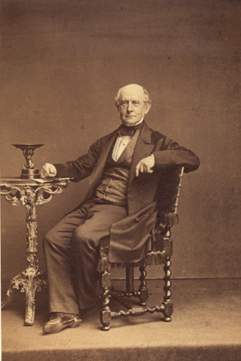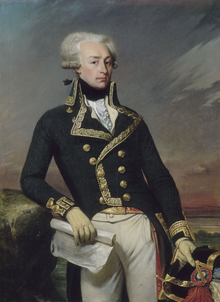Traitor's Blade (2014) is the first installment of a fantasy series with the serial title,
Greatcoats, that is inspired to a degree by Dumas's famous
Musketeers. Nor does one need
Dave Duncan's blurb to know that fine Canadian author is also an influence. The second volume,
Knight's Shadow, appeared earlier this year.
Traitor's Blade reads like what it is, a first novel. As a first effort any intelligent reader -- particularly any reader who has also published -- will give the poor proofreading (such as "waste" for "waist") a pass, since genre publishing doesn't usually shell out for professional proofreaders -- or even copy editors.
A good copy editor or line editor though, would have helped
Traitor's Blade become the better book that it is trying to be. An editor would have helped the author to smooth out his uneven tone which lurches between what so many mistake as Dumas-style wit and banter, and meaningful yet clumsy metaphysical speculation on the nature of being and nothingness. A good editor would have recognized the author loads too many fight scenes at the front, abruptly introduces magic, then disappears it again for most of the book until suddenly -- magical creatures! An editor would have informed the author that his big reveal is buried. Though Falcio seems to know what this all about, there's so little time provided to the reveal of the big reveal the reader is left scratching her head as to what actually happened and what it means.
The narrative does move quickly, but necessary transitions have been omitted, which screws with pacing and rhythm.
Another way of putting it is that
Traitor's Blade needed another revision.
Some of these problems are inevitable with a first person narrator, who emotes like someone who has read the addresses of Vlad Taltos often and uncritically, yet who is admirably attempting to hit those notes of tension, high stakes, peril, courage and justice that combine so pitch perfectly in BBC / America's
The Musketeers (season 1, 2014; season 2, 2015 -- the very best adventure television ever! with the
best coats! horses! leather! and steel!). The voice of the narrator hasn't yet been fine tuned to the story being told, or the voices of the other characters. Voice is
hard!
Doing the Dumas affect effectively in English is also difficult. The French language tends to lend itself to that affect of effortless
ballon that English doesn't -- which perhaps
explains why the language of ballet remains French. English language genre writers often seem to equate the tone of cynicism and sarcasm with the light-footed repartee and wit in which a Dumas veils his concerns with justice, loyalty, honor and courage.
Justice, loyalty, honor and courage are what
Traitor's Blade is about. So much so that Falcio, our narrator and protagonist, informs the reader early on that the great difference between his kind -- the King's Greatcoats (read musketeeers) and knights (read the Red Guards) is that he and the Greatcoats are about justice, which is for all, no matter what class and station, while knights are about honor, which is about themselves. This is the primary reason I am looking to find De Castell's second novel, since its title,
Knight's Shadow, suggests in this book the author may be exploring that conflict more deeply. That's interesting, and not something we've seen much of lately in fantasy fiction.
The voice may not be quite as fresh as it will be, and it is not yet trained, but the mind behind the creation isn't going to be satisfied to writing to formulae.
Or so it seems to this reader.
P.S. The jacket copy bio's tone doesn't well serve Sebastien De Castell, who it seems to this reader, is on the brink of having a fine writing career. Yah, it's a genre thing but really, he is an adult. His book, which wrestles with adult matters -- and so few do these days -- proves it.
 |
| Charoite in rough state. |
 |
| Charoite polishes up into lovely jewelry and other pretty items. |
P.P.S. The author's choice, to name
Greatcoat's quest, the King's Charoites, is a happy one. In New Age parlance,
chariotes' energies can promote physical and emotional healing, help overcome obsessions / addictions and channel other positive transformations when worn on the body. Their shades of violet are lovely.











